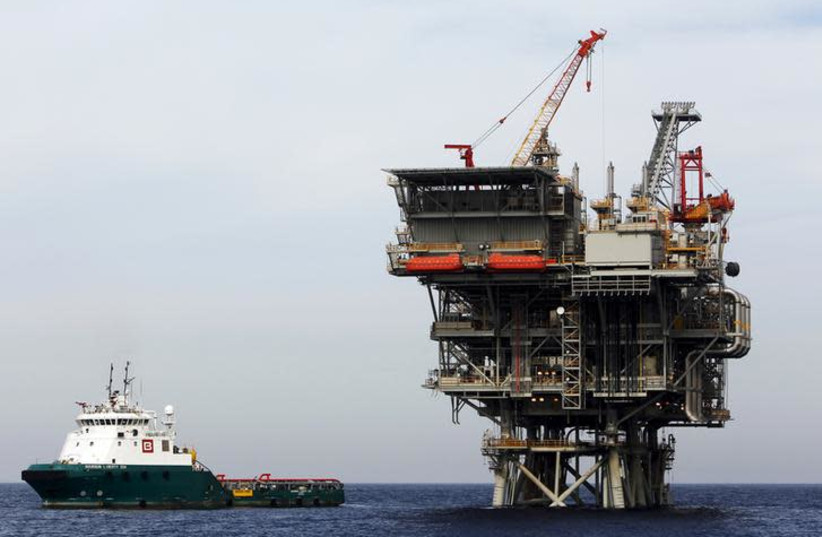Israel could make moves to position itself as a central gas exporter in the Middle East, as tensions surrounding the war in Ukraine have led to discussion about alternatives to Russia’s gas exports. While it is already supplying gas to Jordan and Egypt, if the right steps are taken, Israel has the potential to become a natural gas source for Europe, as well.
“Europe is completely hysterical that it sits in the hands of Putin,” said Dr. Alexander Coman, from the Faculty of Management at Tel Aviv University. “The idea that Putin is sitting with his hand on the faucet and can, at will, open or close gas supply to Europe – this is a terrible scenario for them.”
It is, however, a brilliant opportunity for Israel: in its current position, Europe would do much to find alternative sources to its fuel supply needs. “One of the ways is an alternative pipeline that will bring gas – or perhaps electricity – from Egypt, Israel and [perhaps] Saudi Arabia to Europe, through Cyprus,” explained Coman.
He refers to the EastMed pipeline, a planned project that will directly connect the natural energy resources in the East Mediterranean sea to greater Europe. Drawn up in 2013, the pipeline was to be operational by 2025 following Israel’s approval of the plan in 2020, though that progress was halted when the Biden administration withdrew the United States’ support of the project last month.
This change in policy was staunchly criticized by US representatives Gus Bilirakis (R-Florida) and Nicole Malliotakis (R-New York), who said that it deepened Europe’s energy dependence on Russia’s gas exports. “Biden’s announcement last May to suspend sanctions on the Russian pipeline and his continued fight against sanctions shows clear preference toward Russia over our allies,” they wrote in a letter to the US Secretary of State.

In light of Russia’s invasion of Ukraine, there may be an opportunity to revisit the EastMed pipeline’s viability, though it could hinge on US willingness to renege its withdrawal, as well as Europe’s progress in renewable energy.
In a tweet, Likud MK Yuval Steinitz urged the government to promote construction of the pipeline. “In this time of dramatic rise in energy prices worldwide, and of severe shortages of natural gas in Europe, it is of immense importance to promote Israel’s ability to export gas directly to Europe through pipelines that cross the Mediterranean,” he said.
Germany, which is the largest importer of Russian gas, has announced moves to reduce its dependence on Russia, including the construction of two liquified natural gas terminals. It has also halted the $11 billion Nord Stream 2 Baltic Sea gas pipeline project, which would effectively double Russia’s export capacity made possible by its predecessor, the Nord Stream pipeline. “We must change course to overcome our dependence on imports from individual energy suppliers,” said German Chancellor Olaf Sholz on Sunday.
Israel’s relationship with natural gas has significantly evolved over the past 15 years: until 2012, Israel imported its gas from Egypt, but gradual discoveries of larger natural gas reserves in Israel waters have led the country to its current position as a self-sustaining gas producer and exporter.
At present, Israel’s gas supply mainly comes from two primary natural gas fields off the western shore of the country: Tamar, which contains approximately 10.8 trillion cubic feet of natural gas, and Leviathan, which contains 22 trillion cubic feet – enough to last the country for decades at its current level of gas expenditure.
This excess has opened up the opportunity to begin exporting gas to neighboring countries such as Jordan and Egypt. Israel began supplying natural gas to the former in 2017, when Jordan signed a $10b. 15-year billion supply deal. Israel has exported gas to Egypt since 2016, and is expected to substantially increase the export amount in 2022.
